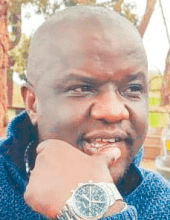ACB explains property vetting stop
The Anti-Corruption Bureau (ACB) says the suspension of its vetting of change of ownership for motor vehicles and real estate property is normal.
ACB director general Martha Chizuma gave the explanation in response to a query by Centre for Democracy and Economic Development Initiatives (Cdedi).

In a letter dated August 9 2021, she said: “One year on, after the bureau resumed the vetting process, the bureau has vetted over 8 000 vehicle transfers and so many property transfers.
“The bureau has not restricted any such transfers because it could not observe any corruption in the same.”
Chizuma was responding to Cdedi executive director Sylvester Namiwa’s statement and letter protesting against the suspension on the basis that it can spur corruption.
The ACB announced suspension of the vetting process on August 6.
Initially, the bureau announced the vetting of property for change of ownership on June 29 2020 in the aftermath of the court-sanctioned fresh presidential election.
But in the letter to Namiwa, Chizuma said there were numerous challenges brought about by the vetting process and that it created a fertile ground for corruption.
While stressing that the bureau had also suspended the vetting process in February 2018, she further told Namiwa that some core functions were being affected by the processes.
She said the process may resume again in the future if a need arises.
But in a telephone interview yesterday, Namiwa said his organisation is not impressed with Chizuma’s response.
“We are suspecting that there is something that is happening because right now there are so many complaints and this is the time the ACB should have tightened all the screws,” he said.
Namiwa said as Cdedi they will see how to address the matter, further stressing that the development brings doubt on the governing Tonse Alliance’s commitment to fighting corruption.
Besides expressing concern over the suspension of the vetting process, Namiwa, in his letter, had also asked Chizuma to justify the decision or risk being branded as a political operative.
In regards to the vetting process, ACB draws its powers from Section 10 (1) of the Corrupt Practices Act that aims at preventing disposal of or concealment of proceeds of crime.





